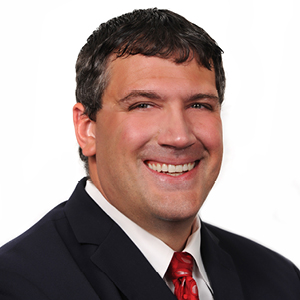Ohio should settle with debt settlement services
Jun 03, 2019This opinion piece appeared in the Akron Beacon Journal.
COLUMBUS — Ohio continues to perpetuate the disturbing trend of allowing industry licensing boards to protect special interests from market competition. From the state cosmetology requirements that make hairdressers train for 10 times as long as emergency medical technicians to the latest special interest effort attacking debt settlement services for the so-called “unauthorized practice of law,” anti-market protectionism always comes at the consumer’s expense.
Debt settlement firms provide services that everyone hopes they will never need. Typically, these for-profit companies try to negotiate with creditors to allow those in debt to pay a lump-sum “settlement” that is less than the full amount owed. Ohioans in debt end up paying less for these services than if they had to hire a lawyer to settle their debts.
Unfortunately, firms that provide settlement services may fall prey to industry competitors ready to argue that debt settlement companies engage in the “unauthorized practice of law” and therefore should only be run by — you guessed it — lawyers. There is growing concern in the state’s debt-settlement industry that a decision by the Ohio Supreme Court will be misapplied and ultimately prevent non-lawyer debt settlement firms from serving Ohioans.
The court held last year that the debt-related services provided by one debt settlement company constituted an unauthorized practice of law by a corporation — but then, the company had already admitted as much when it stipulated that “it rendered legal services in Ohio.”
Running afoul of the unauthorized practice of law doctrine turns on “whether the conduct requires ordinary intelligence as opposed to the particular skill and knowledge possessed by one licensed to practice law.” Debt settlement services fall into the former category, not the latter.
As the American Fair Credit Council observed in its 2018 economic report regarding the debt settlement industry: “Although the debt settlement process involves functioning as the intermediary between the debtor and the creditor, debt settlement service providers do not provide legal representation, nor do they provide tax or bankruptcy advice or counseling services.”
Instead, as former Ohio attorney general Betty Montgomery has since explained, “Debt settlement activities by non-lawyers typically involve the negotiation of debts that draw upon the value of the debt and prior experience with collectors and debtors. Debt settlement companies do not undertake a true legal analysis to determine the value of an outstanding debt or a debtors’ ability to repay.”
Fortunately, the Ohio General Assembly seems to appreciate the distinction between true legal services and the typical services offered by the vast majority of debt settlement companies, and appears ready to defend debt settlers from yet another example of competition-by-regulation. Bills pending in the Ohio House and Senate would allow debt settlement firms to go about their business as usual.
The bills would protect firms from an over-zealous extension of one case, by clarifying the services that debt settlement companies are authorized to provide, and explicitly stating that nothing in the bills should be construed to permit the unauthorized practice of law.
The Ohio Supreme Court, of course, ultimately defines the metes and bounds of the “practice of law” in Ohio, but state policymakers should be applauded for taking steps to resist special interest groups from using knee-jerk over-licensing schemes to limit competition and harm consumers with higher prices and fewer options.
Ohioans already suffer under the burdens of regulation and occupational licensing restrictions. Those burdens limit job opportunities, impede career advancement, and can even add to the debts that debt settlement firms help to resolve. Reducing, restructuring and retiring old debts are hard enough for most people. Renaming debt settlement services as the “unauthorized practice of law” will only make it harder.
Lawson is a research fellow at The Buckeye Institute.

